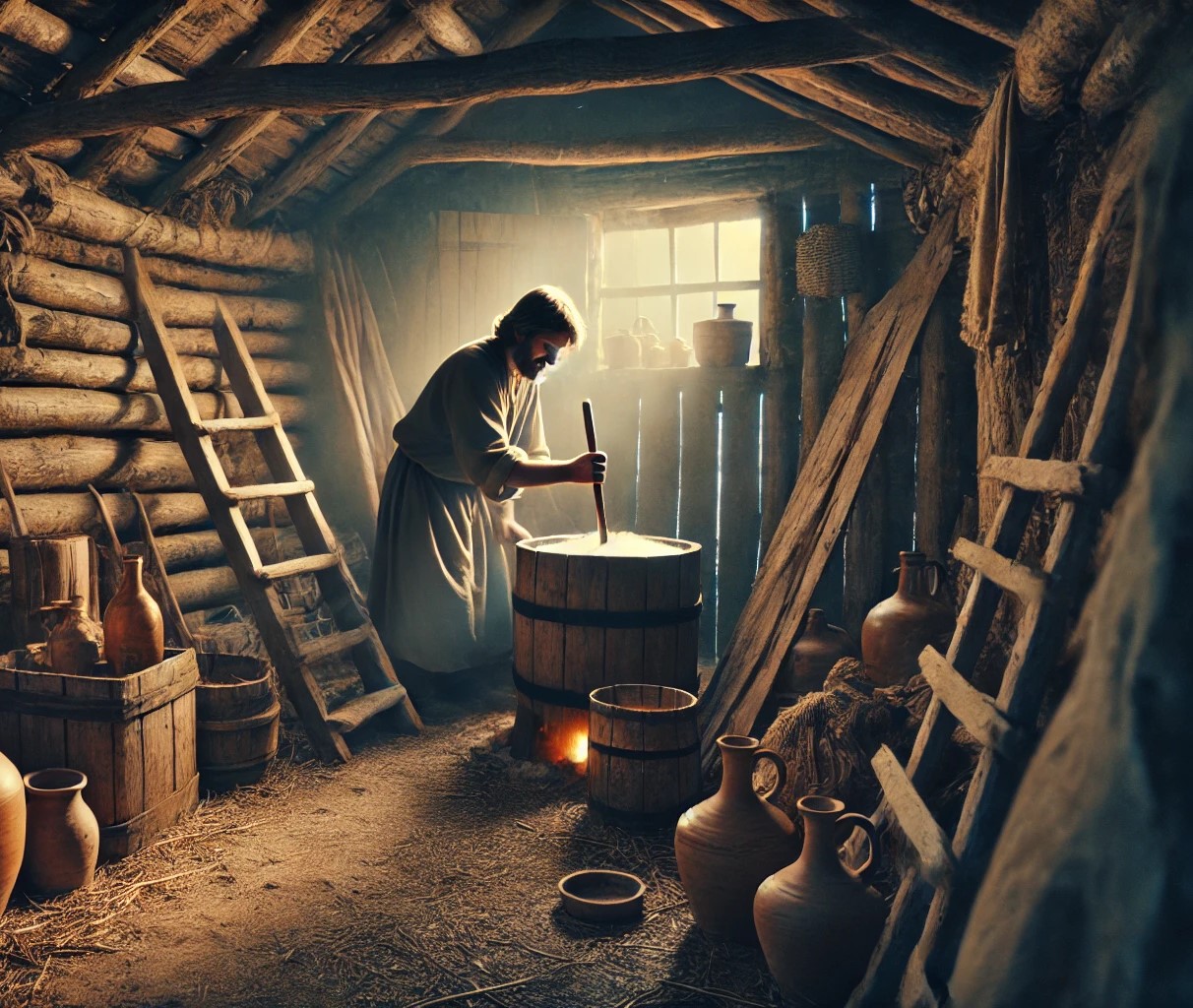Brewing (sage ability)
Brewing is an amateur-status sage ability in the study of Brewing & Distilling, permitting the character to make simple fermented beverages using basic methods and commonly available ingredients. This ability does not extend to the refinement of high-quality ales, but rather focuses on the ability to create drinkable, low-strength alcoholic beverages through natural fermentation.
The process involves knowledge of sourcing and preparing fermentable materials such as grains, fruits and honey, combining them with water and allowing natural yeasts to transform sugars into alcohol. The character understands the importance of sanitation and can recognise when a batch has spoiled due to contamination. Temperature control is limited to environmental conditions, meaning fermentation occurs at ambient temperatures rather than through precise regulation.
Small beers, ciders and meads, which can be made without specialised equipment beyond simple containers, wooden paddles for stirring and breathable covers for fermentation, are within the character's grasp. The final product is often crude and inconsistent, but safe for consumption. With time and repetition, an amateur brewer can produce a steady supply of passable drink, suitable for personal use or limited trade within a local community.
Brewing Limitations
A brewer with only amateur-level knowledge is unable to properly use advanced brewing equipment, without understanding of the difficulties inherent in the use of large wooden vats, multi-stage fermentation or complex filtering methods — nor would they understand the careful timing and temperature awareness required for producing consistent, high-quality ale or mead. Even if given access to a proper brewery with larger tuns, cooling troughs or aging casks, they would lack the experience to scale up production effectively. They would struggle to maintain proper grain-to-water ratios, manage the boiling and cooling of wort, or properly handle racking and secondary fermentation. They might also be unaware of techniques for removing unwanted sediment or controlling off-flavors caused by wild yeasts and bacterial contamination.
However, a brewer with this skill could assist in a proper brewery by handling basic tasks under the direction of a more skilled brewmaster. They would be capable of preparing ingredients, stirring the mash, monitoring fermentation and assisting with racking and transferring liquids between containers. While they lack the technical knowledge to make precise adjustments or troubleshoot complex brewing issues, they understand the fundamentals of fermentation well enough to perform manual labor, follow instructions and recognise when something has gone wrong in the process.
Quality and Volume Produced
Working with only a shed as a workspace can produce approximately 40 to 50 pints (5 to 6 gallons) per week, assuming a single fermentation vessel and minimal equipment. Fermentation typically takes 5 to 7 days, depending on ambient temperature. The limiting factors are available fermentation space, access to ingredients and the ability to sanitise and transfer liquid without contamination. Since the shed provides no controlled temperature regulation, fermentation efficiency will vary harshly with the seasons.
Without access to cellars, caves or ice storage, the high temperatures of summer makes fermentation wholly impractical. Brewing is effectively limited to the cooler months, typically from late autumn through early spring, when ambient temperatures remain within a range that supports stable fermentation. This means that a brewer working in a simple shed could realistically only brew for about six to seven months of the year, with production halting entirely during summer.
See also,
Curdle (cantrip)
Distilling (sage ability)
Purify Water (spell)
Winemaking (sage ability)
